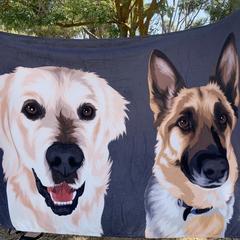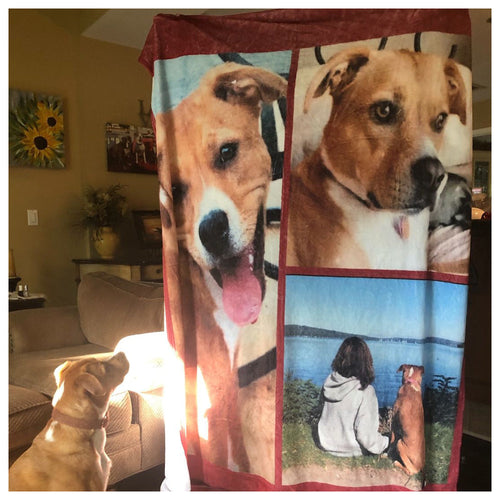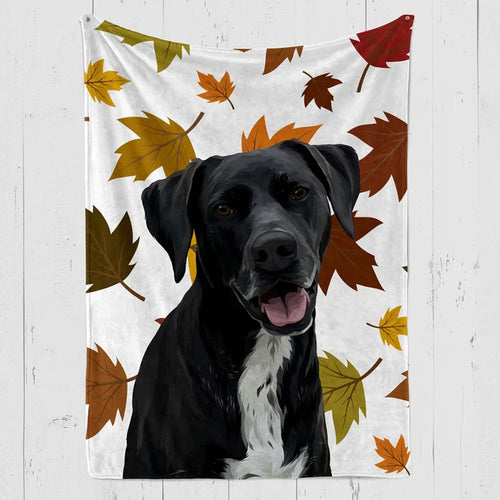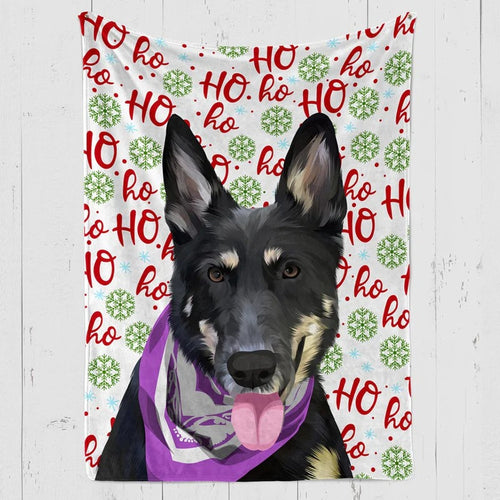If your dog has been making strange noises recently, you should take him to the vet. The hoarse bark of a dog could be a sign of something serious, like laryngeal paralysis or a tumor in the voice box, or it could mean nothing is wrong. A prompt diagnosis and treatment are necessary to prevent long-term damage to your dog's voice.
What Produces a Hoarse Bark in Dogs?
Common Causes & Symptoms of Hoarse Bark in Dogs
1. Causes
Various conditions, such as bacterial or viral infections, environmental irritants, and injuries to the larynx that are physical or mechanical, can cause dog laryngitis. This condition has different causes, some of which are normal:
- Infections: Dogs can get laryngitis from bacterial or viral diseases that spread through contact with infected dogs or contaminated materials.
- Irritants: Exposure to environmental irritants like pollution, cigarette smoke, and dust can also cause laryngitis in dogs.
- Trauma: Laryngitis can also be brought on by excessive barking, which can cause damage to the larynx that is physical.
- Allergies: Unfavorably susceptible responses to specific food varieties, drugs, or ecological elements can likewise cause irritation of the canine's larynx and lead to this condition.
- Conditions medically underlying: A dog's risk of developing laryngitis may also be affected by other underlying medical conditions like Cushing's disease or hypothyroidism.
2. Symptoms
The symptoms of dog laryngitis can range from mild to severe. Some of the most common symptoms of canine laryngitis are as follows:
- The dog lost or changed its voice: Hoarseness or changes in its bark or vocalisations is one of its most apparent signs of laryngitis.
- Breathing difficulties: In severe cases, dogs with laryngitis can make breathing difficult. Additionally, wheezing or panting may be present.
- Inability to drink or eat: Dogs with laryngitis may find it difficult to eat or drink due to the pain and discomfort in their throats.
- Using less energy: Dogs with laryngitis may become more sluggish, have less energy, and eat less.
- Fever: A fever may sometimes accompany dog laryngitis, indicating an underlying infection.
However, the underlying cause and the individual dog's health status may influence the severity of the symptoms.
How to Treat a Dog with a Hoarse Bark?
The severity of the symptoms and the underlying cause of laryngitis in dogs will determine the course of treatment. More often than not, the objective of treatment is to limit irritation, assuage agony and enduring, and deal with any hidden ailments or diseases that could be causing the issue. The home treatment for dog laryngitis is as follows:
1. Reduced activity and rest:
This is an effective home solution for canine laryngitis. Reduce the dog's activity level and give it enough rest to help reduce inflammation and speed up healing.
2. Medications:
Antibiotics, for instance, may be recommended by your veterinarian. You could likewise be endorsed mitigating drugs like Carprofen or meloxicam and hack suppressants to address primary diseases or decrease irritation and agony.
3. Humidification:
In dogs, increased humidity can help reduce inflammation and discomfort in the throat. To accomplish this, either place a dish of water or a humidifier close to the dog's bed.
4. Dietary changes:
Certain dogs with laryngitis may benefit from a soft or liquid diet to reduce the discomfort and difficulty chewing and swallowing.
5. Surgery:
In severe cases, laryngeal damage or underlying structural abnormalities may necessitate surgical intervention.
The most effective method to Forestall Laryngitis in Canines
While it's not generally imaginable to forestall laryngitis in canines, there are a few stages you can take to assist with decreasing your canine's gamble of fostering the condition. The following is some advice for preventing laryngitis in dogs:
1. Keep away from openness to aggravations:
Your dog's exposure to environmental irritants like smoke, dust, and pollution, which can irritate the larynx and raise the risk of inflammation, should be minimised as much as possible.
2. Take control of your dog's barking:
The larynx can be damaged, and the risk of laryngitis is raised by excessive barking. In dog training and management, positive reinforcement and distraction can help reduce your dog's barking.
3. Ensure a healthy way of life:
Your dog's immune system can be maintained, and the risk of underlying medical conditions contributing to laryngitis can be decreased by leading a healthy lifestyle that includes regular exercise, eating a well-balanced diet, and going to the vet regularly.
4. Oversee fundamental clinical problems appropriately:
Managing your dog's medical condition, such as hypothyroidism or Cushing's disease, can lower the risk of laryngitis.
5. Obtain Vet Care:
If your dog has respiratory distress symptoms like persistent coughing or hoarseness, see a veterinarian immediately to avoid complications and ensure prompt treatment.
You should take these steps because they can reduce your dog's risk of laryngitis and improve their overall health and well-being.
Why does a dog's bark change?

Even though their sounds are different, dogs use the same vocal cords as humans to make sounds. A dog's vocal cords are located in the larynx or part of the throat above the trachea. Ligaments hold the larynx together. Canine's vocal lines are thick, permitting them to bark boisterously.
Otherwise called the 'voice confine' people, the larynx is fixed with mucosa. However, it doesn't have cilia (the little hairs which help development inside the channels). Although the larynx is supposed to have a thin layer of mucus to protect it and allow it to work, thicker mucus can be hard to move because there are no cilia to move it.
Also, the larynx is the most delicate region concerning hacking. We can incite the gulping reflex and choking by just putting the finger on the laryngeal region. This also happens when pressure from the outside is placed on the area, like when a leash pulls on their collar. Investigate why canines dry hack and gag to know more.
The condition of the vocal cords and larynx causes the dog to change its bark, become hoarse (dysphonia), or completely lose their voice (aphonia). The purpose for this adjustment of bark tone, volume and sound can be because of different pathologies or different conditions. We should take note of the distinction between an unexpected change in a canine's bark and a dynamic improvement of roughness.
The various reasons why a dog's bark changes are discussed in greater detail below:
1. Laryngitis
At the point when the laryngeal mucosa becomes aggravated and enlarged, it is known as laryngitis. Dogs with laryngitis typically exhibit a change in their bark, which can become hoarse or completely absent if there is sufficient inflammation.
Neurotic reasons for laryngitis in dogs differ. Among the most prevalent infections are acute ones. Excessive mucus production often exacerbates hoarseness when an infection reaches the larynx, whether viral, bacterial, or fungal. The dog's immune system may also attempt to fight infections, which can result in inflammation in the larynx when the dog is immunosuppressed for whatever reason.
Several common infections can cause a dog's hoarse bark. Kennel cough in dogs is one such infection. This type of bronchitis is contagious and quickly spreads to other dogs. This and other respiratory contaminations in canines should be considered, assuming different dogs in your family begin losing their bark.
The underlying cause of laryngitis will determine the course of treatment. Symptom management is typically the only treatment for viral infections, whereas antibiotics may be required for bacterial infections.
-
My Canine's Bark has Changed - Laryngitis Over-the-top Yelping
The justifications for why a canine barks a ton are complex. Due to their genetic inheritance, some dogs bark more frequently than others, with some breeds naturally being more vocal than others. This is just one reason why dogs bark. Their socialisation, experience, treatment, daily practice and considerably more impact how much commotion they make.
If a dog is exhausted and disappointed, it will bark at any improvement in its current circumstance. This is because they lack mental stimulation. If they have been inadequately mingled, they will bark at anything approaching them because of a feeling of dread toward the unexplored world. At times there may be uncommon conditions which bring about the canine yelping a ton, for example, during a tempest or comparative horrendous mishap.
Since the outcome can be irritation of the larynx and rough bark, we ought to figure out how to treat the fundamental issue. You should consult a dog trainer or canine ethologist if you cannot identify or treat the problem.
-
Laryngeal loss of motion
In any case, now and again, the dog has quit woofing or become raspy without supported vocalisations, for example, yapping or hacking. In these cases, the canine might be confronting the laryngeal loss of motion. Senior large-sized dogs comprise most of the population affected by this disorder. It is a more considered normal medical condition in breeds like the Labrador Retriever, Brilliant Retriever, Irish Setter and Holy person Bernard, among others. It is considered a genetic imperfection for breeds such as the Siberian Imposing or the English Bull Terrier.
-
Laryngeal paralysis
- Sound of laboured breathing during inhalation and exercise. It is additionally created during rest.
- Debilitating the bark until it is indistinguishable for all intents and purposes.
- Breathing becomes noisy and exhausting if the disease doesn't get better. Practice bigotry advances as the clinical picture advances.
- Swooning because of a respiratory trade-off can happen, in any event, causing a breakdown that can prompt the passing of the creature. Diagnostics by veterinarians are crucial.
A veterinarian can analyse this condition by direct perception of the vocal strings with the assistance of a laryngoscope. When they should be separated, the middle of the vocal cords will appear to be joined. This narrowing of the respiratory passage at the larynx brings on Hoarseness. Surgery is used to treat the condition. Sometimes, the vocal strings should be removed, and the canine will quit yelping forever.
2. Gastrointestinal sickness
There are various side effects of gastrointestinal sickness in canines. While spewing and the runs are normal, numerous others may not be as straightforwardly self-evident.
Dog gastritis, acid reflux, and other digestive problems can cause gastric acid to be thrown up. Coping and acid reflux may harm the vocal cords because the larynx is in the back of the throat. The dog becomes raspy, particularly assuming the issue is persistent. Treating the hidden justification for the gastrointestinal problem will be the method for treating the issue.
-
My Canine's Bark Has Changed - Gastrointestinal Illness.
Although irritation can happen due to infections and other more normal pathologies, it is likewise conceivable that neoplasia can foster on the larynx. Because they are abnormal growths that arise from the mucosa in these instances, they are referred to as polyps. Polyps might create because of little yelping or harm from an unfamiliar item entering the throat.
The larynx can also develop benign or malignant tumours (cancer). You will probably notice different side effects in these cases, notwithstanding dryness in the canine's bark. The dog's mouth may be filled with blood, and its entire body may eventually become weaker. Although polyps and cancers of the larynx are uncommon in dogs, they can be fatal. This is another significant justification for why it is so critical to take the canine to a veterinarian if our canine's bark changes unexpectedly or dynamically.
Frequently Asked Questions
Why does my dog have a hoarse bark?
Inflammatory laryngitis, gastroesophageal reflux, laryngeal paralysis, masses or tumours, and everted laryngeal saccules are all common causes of hoarse barking in dogs. To properly diagnose and treat the underlying cause, it is essential to have your dog evaluated by a veterinarian.
Can I treat my dog's hoarse bark at home?
We can't treat our dogs with hoarse bark at home. If your dog makes a hoarse or dry cough-like sound, your veterinarian is the best person to call. They can recommend and prescribe treatments in addition to determining the cause of the hoarseness through an examination or, if necessary, X-rays. Depending on the cause, they may prescribe anti-inflammatory medications or suggest surgery.
During the healing process, your dog will require confinement and rest if injured or had surgery. A dog with a hoarse voice must be kept out of situations where they would typically bark or howl, just like humans do.
If your dog has a gag chain, dispose of it immediately and supplant it with a delicate texture restraint. Your veterinarian may prescribe anti-inflammatories. Inflammation can also be eased by providing your dog with ice-cold water. If a veterinarian does not treat it after a trauma, your dog's damaged, inflamed, or irritated airway may collapse, resulting in suffocation.
When should I take my dog to the vet for a hoarse bark?
If the dryness persists for over 14 days, it means quite a bit to take your canine to see your veterinarian so they can preclude some other expected causes.
After excessive barking, your dog's hoarseness should go away within a few days if you notice it.
What could be causing my dog's hoarse bark?
Inflammatory laryngitis, gastroesophageal reflux, laryngeal paralysis, masses or tumours, and everted laryngeal saccules are all common causes of hoarse barking in dogs. To properly diagnose and treat the underlying cause, it is essential to have your dog evaluated by a veterinarian.
Should I be concerned about my dog's hoarse bark?
A hoarse bark can have many causes, including upper respiratory lot contamination and laryngitis. Canines can likewise become raspy on the off chance that they were yelping unnecessarily earlier. Crying shows torment, and if his ear is sore, there likely could be contamination. A vet visit is ideal so they can look at him all.
How can I provide relief for my dog with a hoarse bark?
To avoid harming the larynx or worsening a mild condition of laryngeal paralysis, do not use choke collars or jerk leads, particularly with smaller dogs. Excessive heat and physical activity should be avoided whenever at all possible. Even though dogs need to be socialised, you should try to avoid unfamiliar, aggressive, or feral dogs to avoid a fight and neck trauma.
When you open your home and heart to a canine, you must know the potential plants and normal family substances that may poison your pet. Things that could be dangerous should be kept out of your dog's reach. If unsure about a particular plant or substance, poison Control or your veterinarian's office can provide additional information on substances.
Can I give my dog any over-the-counter medications?
There is no counter medication. Debarking, also known as devocalisation, devoicing, or bark softening, is a surgical procedure in which laryngeal tissue is removed from a dog to prevent them from making normal barking sounds. There has been a lot of debate surrounding this procedure, which many people believe to be cruel or unethical.
When should I take my dog to the vet?
Assuming that you saw that your canine lost its voice after inordinate woofing, the raspiness ought to determine on its own within a couple of days. In any case, if the dryness endures for over 14 days, it means quite a bit to take your canine to see your veterinarian so they can preclude some other expected causes.
Conclusion
A dog’s bark can become hoarse for various reasons, not all sickness-related. Choke chains, collars, and situations in which your dog feels the need to howl excessively or bark should be avoided. Contact your local animal hospital as soon as possible to diagnose and treat your dog's hoarseness, which may indicate a severe but treatable health condition.
Web Resources
- kleinpeter-vet.com
- https://www.kleinpeter-vet.com/site/blog/2023/04/15/dog-laryngitis#:~:text=If%20it's%20not%20too%20bad,inflammatory%20drugs%20can%20be%20used
Recommended Articles :
Similar Articles
Latest Review on Woof Blankets
To have such a masterpiece by my side every day is a gift for me and my memories with Rex. Thank you WoofBlankets for such an opportunity to recreate his image on a blanket.Lara o’ Miguel US, California

COLLECTION WORTH EVERY PENNY
BEST SELLERS
-
Woofy Single Color Custom Pet Blanket
![Woofy Single Custom Pet Blanket – Woof Blanket]()
- -41%
BlanketsSHOP NOW- Regular price
- from $64.95
- Sale price
- from $64.95
- Regular price
-
$109.95 - Unit price
- per
Sold out -
The French Sailor - Custom Pet Portrait
![]()
- -25%
CanvasSHOP NOW- Regular price
- from $59.95
- Sale price
- from $59.95
- Regular price
-
$79.95 - Unit price
- per
Sold out -
Summer Time Custom Pet Blanket
![Summer Time Custom Pet Blanket]()
- -39%
BlanketsSHOP NOW- Regular price
- from $69.95
- Sale price
- from $69.95
- Regular price
-
$114.95 - Unit price
- per
Sold out -
Pet Memorial Custom Photo Collage Blanket
![Personalized pet memorial quilt with photos]()
- -41%
BlanketsSHOP NOW- Regular price
- from $64.95
- Sale price
- from $64.95
- Regular price
-
$109.95 - Unit price
- per
Sold out -
4th of July Custom Pet Blanket
![4th of July Custom Pet Blanket Online]()
- NEW
- -39%
BlanketsSHOP NOW- Regular price
- from $69.95
- Sale price
- from $69.95
- Regular price
-
$114.95 - Unit price
- per
Sold out -
Modern Pet Portraits
![Cute Dog Modern Pet Portraits Online]()
- NEW
- -36%
CanvasSHOP NOW- Regular price
- from $59.95
- Sale price
- from $59.95
- Regular price
-
$93.95 - Unit price
- per
Sold out -
The Admiral - Custom Pet Portrait
![The Admiral - Custom Pet Portrait Online]()
- NEW
- -25%
CanvasSHOP NOW- Regular price
- from $59.95
- Sale price
- from $59.95
- Regular price
-
$79.95 - Unit price
- per
Sold out -
Woof Splash Custom Pet Blanket
![Woof Splash Custom Pet Blanket]()
- -39%
BlanketsSHOP NOW- Regular price
- from $69.95
- Sale price
- from $69.95
- Regular price
-
$114.95 - Unit price
- per
Sold out -
The Policeman - Custom Pet Portrait
![]()
- NEW
- -25%
CanvasSHOP NOW- Regular price
- from $59.95
- Sale price
- from $59.95
- Regular price
-
$79.95 - Unit price
- per
Sold out -
The General - Custom Pet Portrait
![]()
- NEW
- -25%
CanvasSHOP NOW- Regular price
- from $59.95
- Sale price
- from $59.95
- Regular price
-
$79.95 - Unit price
- per
Sold out -
Woof Love Custom Pet Blanket
![Woof Love Custom Pet Blanket]()
- -39%
BlanketsSHOP NOW- Regular price
- from $69.95
- Sale price
- from $69.95
- Regular price
-
$114.95 - Unit price
- per
Sold out -
The Ambassador - Custom Pet Portrait
![The Ambassador - Custom Pet Portrait Online]()
- NEW
- -25%
CanvasSHOP NOW- Regular price
- from $59.95
- Sale price
- from $59.95
- Regular price
-
$79.95 - Unit price
- per
Sold out -
Fall In Love Custom Pet Blanket
![Fall In Love Custom Dog Blanket]()
- NEW
- -39%
BlanketsSHOP NOW- Regular price
- from $69.95
- Sale price
- from $69.95
- Regular price
-
$114.95 - Unit price
- per
Sold out -
Cartoonized Pet Portraits (New)
![Cartoonized Pet Custom Portraits Online]()
- -36%
SHOP NOW- Regular price
- from $59.95
- Sale price
- from $59.95
- Regular price
-
$93.95 - Unit price
- per
Sold out -
The Classy Lady - Custom Pet Portrait
![The Classy Lady]()
- NEW
- -25%
CanvasSHOP NOW- Regular price
- from $59.95
- Sale price
- from $59.95
- Regular price
-
$79.95 - Unit price
- per
Sold out -
The Duke - Custom Pet Portrait
![The Duke - Custom Pet Portrait]()
- NEW
- -25%
CanvasSHOP NOW- Regular price
- from $59.95
- Sale price
- from $59.95
- Regular price
-
$79.95 - Unit price
- per
Sold out -
Dog In Suit- Custom Pet Portrait
![Dash Dog In Suit- Custom Pet Portrait Online]()
- NEW
- -25%
CanvasSHOP NOW- Regular price
- from $59.95
- Sale price
- from $59.95
- Regular price
-
$79.95 - Unit price
- per
Sold out -
The Princess - Custom Pet Portrait
![]()
- NEW
- -25%
CanvasSHOP NOW- Regular price
- from $59.95
- Sale price
- from $59.95
- Regular price
-
$79.95 - Unit price
- per
Sold out -
Modern Pet Portrait with One Mug
![Modern Pet Portrait with One Mug]()
- -25%
Print MaterialSHOP NOW- Regular price
- from $99.95
- Sale price
- from $99.95
- Regular price
-
$133.95 - Unit price
- per
Sold out -
The Aristocrat - Custom Pet Portrait
![The Aristocrat - Custom Pet Portrait At Best Price]()
- NEW
- -25%
CanvasSHOP NOW- Regular price
- from $59.95
- Sale price
- from $59.95
- Regular price
-
$79.95 - Unit price
- per
Sold out -
Single Color Custom Blanket with 1 Mug
![Single Color Custom Blanket with 1 Mug]() BlanketsSHOP NOW
BlanketsSHOP NOW- Regular price
- from $99.95
- Sale price
- from $99.95
- Regular price
-
- Unit price
- per
Sold out -
Single Color Custom Blanket with 2 Pillows
![Single Color Custom Pet Blanket with 2 Pillows]()
- -21%
BlanketsSHOP NOW- Regular price
- from $99.95
- Sale price
- from $99.95
- Regular price
-
$125.95 - Unit price
- per
Sold out -
The Dog in Suit Custom Pet Mug
![]()
- -20%
MugsSHOP NOW- Regular price
- $39.95
- Sale price
- $39.95
- Regular price
-
$49.95 - Unit price
- per
Sold out -
Angel Custom Pet Mug
![]()
- -20%
MugsSHOP NOW- Regular price
- $39.95
- Sale price
- $39.95
- Regular price
-
$49.95 - Unit price
- per
Sold out -
This Human Belongs To - Custom Pet Mug
![]()
- NEW
- -20%
MugsSHOP NOW- Regular price
- $39.95
- Sale price
- $39.95
- Regular price
-
$49.95 - Unit price
- per
Sold out -
It's Not Dog Hair Custom Pet Mug
![]()
- NEW
- -20%
MugsSHOP NOW- Regular price
- $39.95
- Sale price
- $39.95
- Regular price
-
$49.95 - Unit price
- per
Sold out -
My Dog Is My Valentine Custom Pet Mug
![]()
- NEW
- -20%
MugsSHOP NOW- Regular price
- $39.95
- Sale price
- $39.95
- Regular price
-
$49.95 - Unit price
- per
Sold out -
3 Photos With Message Custom Pet Mug
![]()
- NEW
- -20%
MugsSHOP NOW- Regular price
- $39.95
- Sale price
- $39.95
- Regular price
-
$49.95 - Unit price
- per
Sold out -
My Valentine Has Four Legs- Personalized Mugs
![]()
- NEW
- -20%
MugsSHOP NOW- Regular price
- $39.95
- Sale price
- $39.95
- Regular price
-
$49.95 - Unit price
- per
Sold out -
Dog Mamma Custom Pet Coffee Mug
![]()
- -20%
MugsSHOP NOW- Regular price
- $39.95
- Sale price
- $39.95
- Regular price
-
$49.95 - Unit price
- per
Sold out -
Uncle Sam - Custom Pet Portrait
![]()
- NEW
- -25%
CanvasSHOP NOW- Regular price
- from $59.95
- Sale price
- from $59.95
- Regular price
-
$79.95 - Unit price
- per
Sold out -
The Revolutionary Emperor - Custom Pet Portrait
![]()
- NEW
- -25%
CanvasSHOP NOW- Regular price
- from $59.95
- Sale price
- from $59.95
- Regular price
-
$79.95 - Unit price
- per
Sold out -
The Princess Paws - Custom Pet Portrait
![]()
- -25%
CanvasSHOP NOW- Regular price
- from $59.95
- Sale price
- from $59.95
- Regular price
-
$79.95 - Unit price
- per
Sold out -
Exclusive Custom Pet Blanket
![Exclusive Custom Pet Blanket]()
- -39%
BlanketsSHOP NOW- Regular price
- from $69.95
- Sale price
- from $69.95
- Regular price
-
$114.95 - Unit price
- per
Sold out -
The Dark Crusader Knight - Custom Pet Portrait
![]()
- -25%
CanvasSHOP NOW- Regular price
- from $59.95
- Sale price
- from $59.95
- Regular price
-
$79.95 - Unit price
- per
Sold out


























































